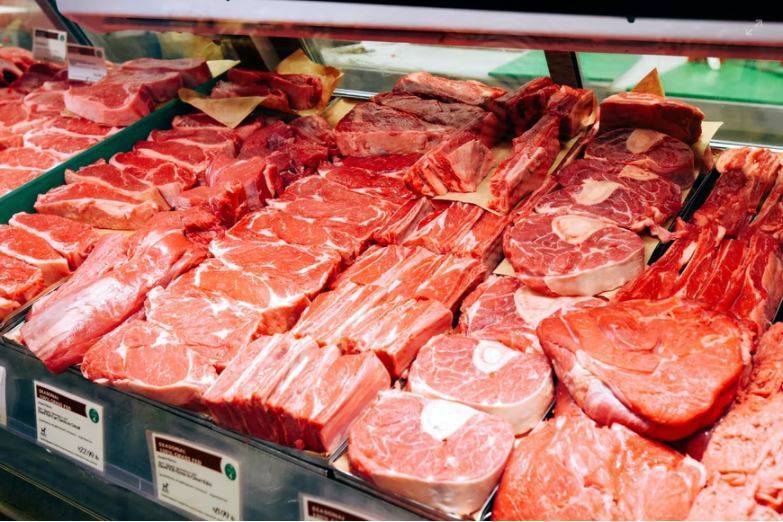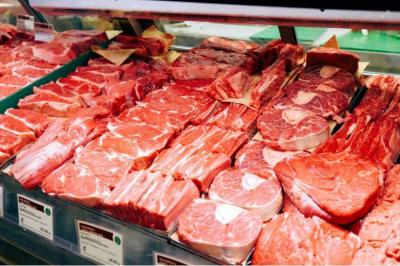The Lebanese crisis has cast shadows over all sectors, especially following the Russian attack on Ukraine, raising concerns about the impact of the war and the global energy dilemma on Lebanon, along with the instability of the dollar exchange rate. These fears have led some Lebanese traders to stockpile food materials, resulting in rising prices for products, including meat.
Joseph Al-Habr, the head of the Meat Traders Syndicate in Lebanon, stated days ago that if the central bank does not pay the dues of meat importers from the subsidized basket, which constitutes 5% of it, meat might disappear from Lebanese markets within two weeks. Source related to the matter told "Sky News Arabia" that if meat is available and the Central Bank of Lebanon supports traders, the price of meat would not reach 500,000 Lebanese pounds as feared, but would stabilize around 300,000 or 350,000 pounds.
Majed Eid, a representative of the Union of Butchers and Live Livestock Traders in Lebanon, mentioned to "Sky News Arabia" that "the meat sector was supported by the Central Bank of Lebanon, which owes about $100 million. The bank has delayed in paying these dues. Six months ago, an agreement was reached with the governor of the bank for gradual payments in Lebanese pounds at the unofficial exchange rate: 40% as an initial payment, and 5% each month for a year."
Eid added, "We were surprised that the first payment (the 40%) was paid at the government’s Sayrafa platform rate, which caused a loss of 20 to 30 percent due to the difference between the official and market price. Afterward, the governor made two payments until we reached 50% of the dues, but he has stopped payments for the past two months under the pretext of Circular No. 161, to avoid inflation and increased demand for dollars, leading to a liquidity shortage among importers. There are 25 importers and about 1,500 meat traders, with many butchers at risk of closing."
He continued, "After the Russian-Ukrainian war, prices began to rise by 3 to 6 percent, and we anticipate further price increases in the meat sector, possibly reaching $12 per kilogram after previously being around $10. Imports will decrease because of this, and purchasing power is difficult for Lebanese citizens."
Eid added regarding animal feed, "70% of it is imported, and its price will rise with increasing oil prices. We are heading towards a significant problem in the meat sector." He concluded, "Before the crisis, Lebanon used to receive 7 ships loaded with livestock; currently, only one ship arrives each week."
On another hand, Khair Jaraah, a former head of the Dairy Cattle Breeders Syndicate in Lebanon, believes that "the meat crisis is exaggerated," attributing this to the fact that shipments of cattle are still ongoing from Europe, Colombia, and Brazil, in addition to imported chilled and frozen meat. Jaraah said to "Sky News Arabia", "A significant portion of sheep meat crosses through the Syrian borders, and the outcry of a crisis is merely pressure from importers who had overdue debts in dollars owed by the Central Bank of Lebanon, aiming to recover part of their money."
He added, "In my opinion, there will not be a crisis. The current price of fresh meat at 350,000 pounds is high, and if the dollar remains stable, the price of meat should not exceed $11 per kilogram, which is around 230,000 pounds." He concluded, "Yes, there is pressure on meat prices with rising grain and feed costs that are used in fattening cattle, but there is no shortage, and the claims of a price of 500,000 pounds per kilogram are exaggerated."




